Ultimate Guide: The Key to Successful Female Betta Sorority
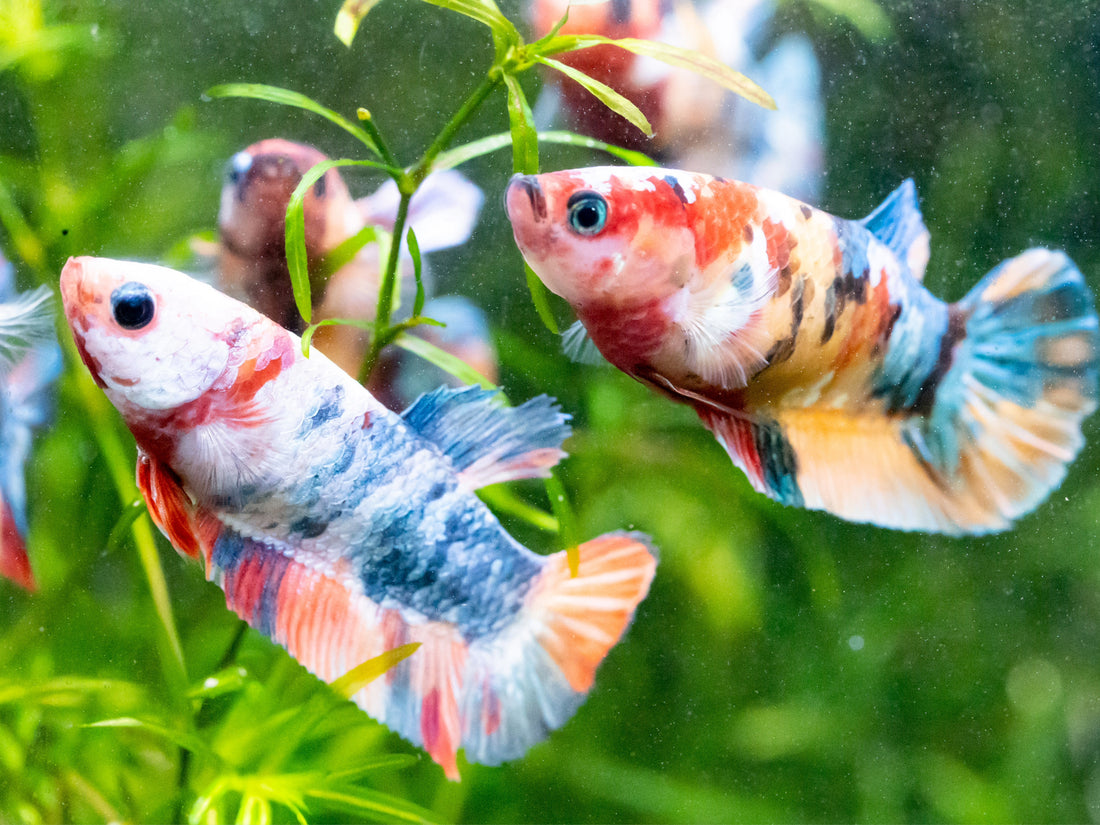
Contents
- 1- Understanding Betta Fish
- 2- The Concept of a Betta Sorority
- 3- Key Considerations Before Starting
- 4- Black Water: The Main Key to Success
- 5- Maintaining a Healthy Betta Sorority
- 6- Common Challenges and Solutions
-
7- FAQs
- 7.1- How many female bettas can I keep in a sorority?
- 7.2- Can I add other species to my betta sorority tank?
- 7.3- What are the signs that my betta sorority is not working?
- 7.4- How often should I test the water in my betta sorority tank?
- 7.5- Can I keep male and female bettas together in a sorority?
- 8- Where to High-Quality Female Betta Fish?
Hey there, aquarist enthusiast! Are you ready to dive into the mesmerizing world of betta fish? More specifically, are you up for the challenge and rewards of creating a female betta sorority? If so, you've landed in the perfect spot. This ultimate guide is packed with insights, tips, and secrets to help you navigate the waters of setting up and maintaining a thriving betta sorority from our expert, breeding. So, grab your snorkel, and let's get submerged!
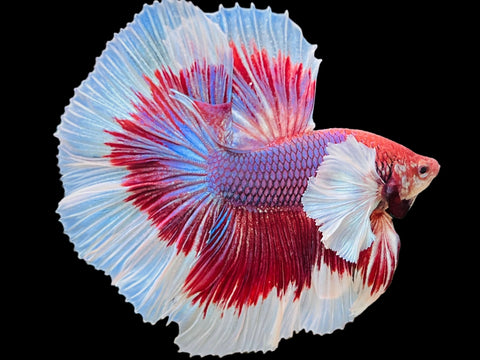
Understanding Betta Fish
The Mystique of Betta Fish
Betta fish, or Siamese fighting fish, are not just another pretty face in the aquarium. These creatures are steeped in history, from their origins in Southeast Asian rice paddies to becoming one of the most beloved aquarium pets worldwide. What sets them apart? Their vivid colors, dramatic fin displays, and unique personalities make each betta a living piece of art. But there's more to these fish than meets the eye.
Female Betta Fish: Social Creatures?
When people think of bettas, the first image that often comes to mind is of a solitary male, flaring his gills in defense of his territory. However, female bettas tell a different story. Under the right conditions, they can coexist, displaying a fascinating social structure that's both complex and captivating. Yes, you heard it right—female bettas can live together harmoniously in what's known as a betta sorority. But how, you ask? Let's dive deeper.
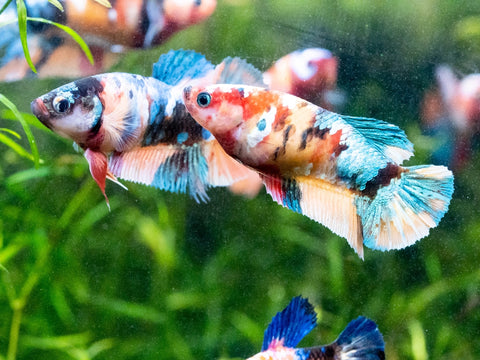
The Concept of a Betta Sorority
What is a Betta Sorority?
Imagine a peaceful underwater realm where several female bettas glide gracefully among lush aquatic plants and hideaways. This is the essence of a betta sorority—a group of female bettas living together in a carefully structured community. It's a delicate balance, where the environment, personalities, and hierarchy play pivotal roles in ensuring peace among the inhabitants.
Benefits of Establishing a Betta Sorority
Why embark on this journey? A betta sorority is not just an aquarium setup; it's a dynamic ecosystem that showcases the social aspect of these fascinating fish. Watching them interact, establish pecking orders, and explore their environment offers a unique and enriching experience for any aquarist. Plus, the combined beauty of several bettas adds an unparalleled visual appeal to your aquarium.
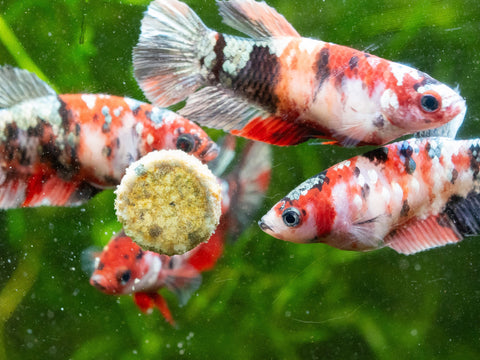
Key Considerations Before Starting
Tank Size and Conditions
Before you rush to the pet store, let's talk logistics. The success of a betta sorority heavily depends on the tank size and conditions. As a rule of thumb, you'll need at least a 20-gallon tank to start. This provides ample space for each betta to claim her territory and reduce potential conflicts. Water quality, temperature, and filtration are also non-negotiables for keeping your bettas healthy and stress-free.
Choosing the Right Females
Not all female bettas are cut out for sorority life. When selecting candidates, look for signs of health, vigor, and a relatively calm demeanor. Younger fish are often more adaptable to new environments and social structures, making them ideal choices for your sorority. Remember, diversity is the spice of life, but in this case, it's also the key to a harmonious tank.
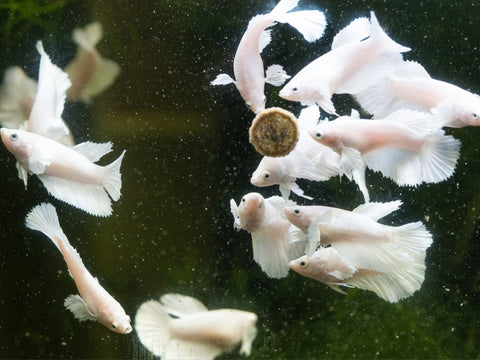
Female Betta Born and Raised Together is Important Too
Here's a pro tip: starting with females that were born and raised together can significantly smooth the path to sorority success. These fish have already established a social hierarchy among themselves, reducing the chances of severe aggression when introduced to the tank. Think of it as moving in with your childhood friends instead of strangers—it's just easier to get along.
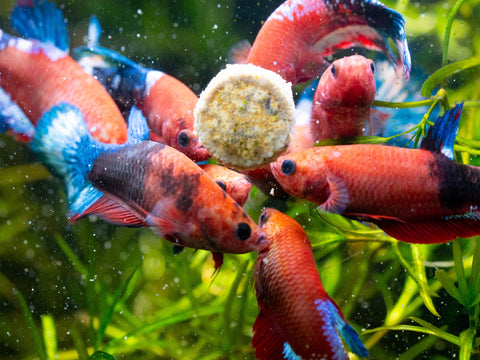
Black Water: The Main Key to Success
What is Black Water?
Black water replicates the natural habitats of bettas in the wild, characterized by its dark, tea-colored appearance resulting from the leaching of tannins. This environment not only beautifies your aquarium with a mystical allure but also offers numerous health benefits for your bettas.

Benefits of Black Water for Bettas
The tannins in black water have natural antibacterial and antifungal properties, promoting healthier fish and reducing the risk of diseases. Furthermore, the subdued lighting and the naturalistic environment help lower stress levels, making your bettas feel more at home. This stress reduction is crucial in a sorority setting, where elevated stress can lead to increased aggression.
How to Create and Maintain Black Water Conditions
Creating black water conditions is simpler than you might think. Adding driftwood, almond leaves, or peat moss to your aquarium can gradually release tannins into the water. Be patient, as it takes time for the water to change color. Monitoring the water parameters is essential to ensure the environment remains healthy for your bettas.

Maintaining a Healthy Betta Sorority
Once your betta sorority is established, ongoing maintenance is key to ensuring a peaceful and healthy environment for your fish. Let's dive into the essentials of sorority care.
Feeding and Nutrition
Feeding your betta sorority correctly is crucial to avoid food-related aggression and ensure all members receive adequate nutrition. Opt for high-quality betta pellets as the staple of their diet, supplemented with frozen or live foods such as brine shrimp, bloodworm or daphnia for variety. Feed small amounts twice a day, and observe to ensure all bettas are getting their share without overfeeding.
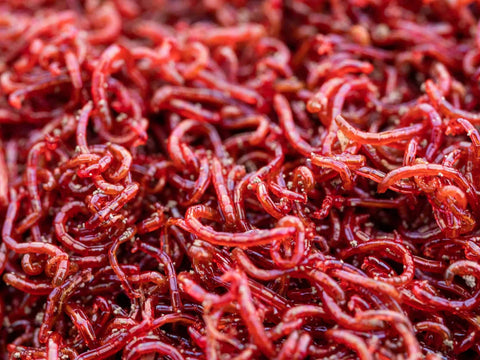
Monitoring and Managing Aggression
Even in the most harmoniously started sororities, occasional flare-ups of aggression can occur. It's vital to monitor your fish regularly for signs of stress or bullying. Providing plenty of hiding spots and visual barriers with plants and decorations can help reduce aggression by allowing lower-ranking bettas to escape and hide.
Health Checks and Water Quality
Regular health checks are essential to catch any signs of illness early. Look out for symptoms like lethargy, clamped fins, or unusual swimming patterns. Keeping the water quality high with regular changes and testing is crucial to prevent disease. Aim for at least a 20% water change weekly and monitor parameters such as ammonia, nitrites, and nitrates closely.
Common Challenges and Solutions
Aggression and Stress
Despite best efforts, you may encounter challenges with aggression and stress within your sorority. If aggression becomes a significant issue, consider rearranging the tank to disrupt established territories or temporarily isolating overly aggressive fish to calm the situation.
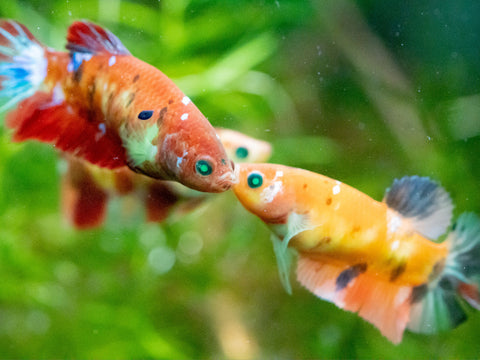
Illness and Prevention
Preventative care is the best approach to maintaining a healthy sorority. Quarantine new plants or decorations and introduce new fish cautiously to avoid the spread of disease. Regular maintenance and careful observation will help you prevent many common illnesses.
FAQs
How many female bettas can I keep in a sorority?
As a general rule, aim for 5 or more females in a 20-gallon tank to distribute aggression and prevent bullying. Adjust numbers based on tank size, ensuring ample space for each betta.
Can I add other species to my betta sorority tank?
Yes, but choose tank mates carefully. Peaceful, non-aggressive species that don't resemble bettas or compete for the same territory are best, such as snails, shrimp, or certain types of tetras.
What are the signs that my betta sorority is not working?
Persistent aggression, injuries, stressed or hiding fish, and any signs of illness indicate that adjustments are needed in your sorority setup.
How often should I test the water in my betta sorority tank?
Test the water weekly for key parameters like ammonia, nitrites, nitrates, and pH levels to ensure the tank remains a safe environment for your fish.
Can I keep male and female bettas together in a sorority?
It's generally not recommended to keep male and female bettas together in a sorority setting due to the risk of aggressive behavior and breeding stress.
Where to High-Quality Female Betta Fish?
When looking to purchase high-quality Female Betta Fish, Tropicflow stands out as a premier brand renowned for its dedication to excellence in the aquaculture industry. With our own Betta farm located in Asia, we prides itself on offering a wide collection of vibrant and healthy female Betta fish.
No comments










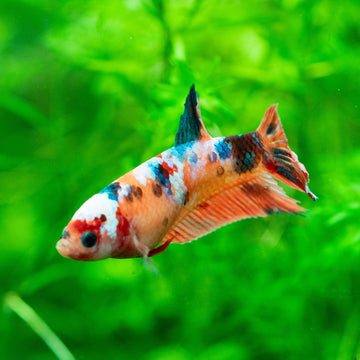
0 comments